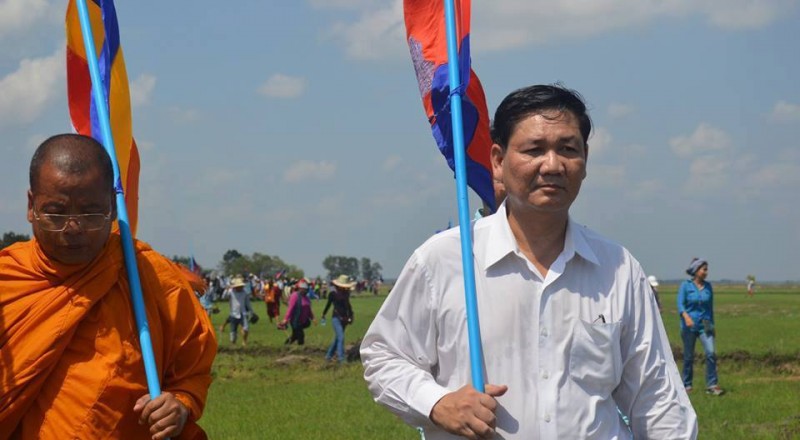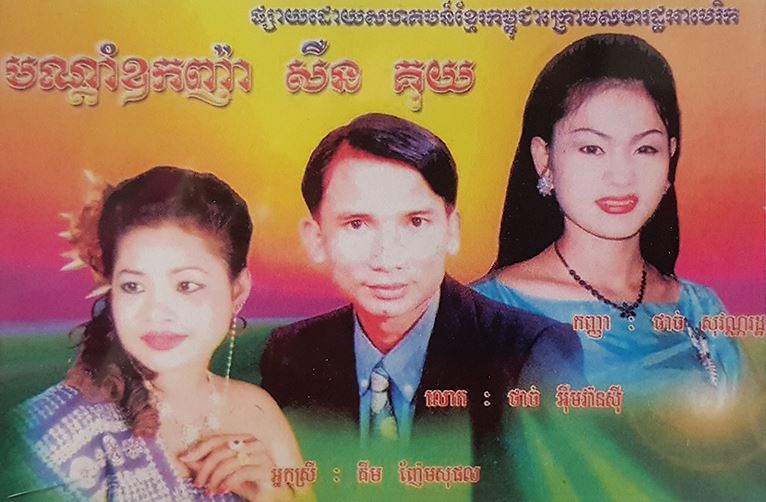Party Law breaches international human rights standards, says UN
Thu 3rd Waxing Moon of Citta B.E.2560, March 30, A.D.2017 Year of the Monkey
The Phnom Penh Post

The United Nation’s human rights office in Cambodia yesterday jumped into the political fray, deeming controversial amendments to the Law on Political Parties in breach of the Kingdom’s constitution and international human rights law.
In a 32-page legal analysis, released online, the UN Office of the High Commissioner of Human Rights (OHCHR) stated the legislative changes, hastily drafted by the Cambodian People’s Party and swiftly approved by parliament in February, included “vague” language and “excessive” restrictions. The amendments, widely seen as aimed at the opposition Cambodia National Rescue Party, allow authorities to dissolve parties for threatening “national unity”, the “security of the state” or making “serious mistakes”.
The OHCHR, whose criticism has in recent times drawn the ire of the government – which last year stalled signing its cooperation agreement and threatened to kick it out of the country – said such terms must be clarified to “ensure that restrictions are not arbitrarily applied”.
The agency also took aim at the Ministry of Interior’s “considerable discretion” under the law to suspend the activities of political parties who violate any law or make a “serious mistake”, saying it amounts to “de facto dissolution”. This, they said, contravened the International Covenant on Civil and Political Rights (ICCPR) – which protects free association, expression and assembly – and also fell afoul of similar protections in Cambodia’s own constitution.
Among the most controversial elements of the new provisions is Article 18, which banned individuals with a criminal conviction, felony or misdemeanour, from leadership positions in a party. The article was widely seen as targeting former CNRP president Sam Rainsy, who, facing several convictions widely considered politically motivated, resigned in February in a bid to preempt the changes.
Saying the provision appeared “excessive” and would certainly fail the “reasonableness” test under the ICCPR, the OHCHR suggested the article bar only those imprisoned for more than five years for a felony involving violence, incitement to hatred or abuse of executive or legislative authority.
Further, the OHCHR suggested Article 18 be expanded to bar senior leaders in the military, police, judiciary and other state institutions requiring neutrality from leaderships positions in a party to avoid “conflicts of interest”. Such a provision, if enacted, would disqualify the bulk of the CPP’s central committee and permanent committee, which includes the president of the Supreme Court, the sole judicial body tasked with adjudicating the party law.
Via email yesterday, OHCHR representative in Cambodia Wan-Hea Lee said the agency had not yet received any reaction from the government to its analysis, but stood ready to engage in “constructive dialogue with the relevant authorities”.
CPP spokesman Sous Yara, meanwhile, defended the law and said the UN “had no right to interfere in state affairs”.
Related
សូមគាំទ្រឧបត្ថម្ភ សហគមន៍ខ្មែរក្រោម Support KKC
សូមអរគុណដ៏ជ្រាលជ្រៅចំពោះសប្បុរសជននូវវិភាគទានទាំងនេះ។
We’re On Facebook

Sign in
Click here to reload the page over ssl.




